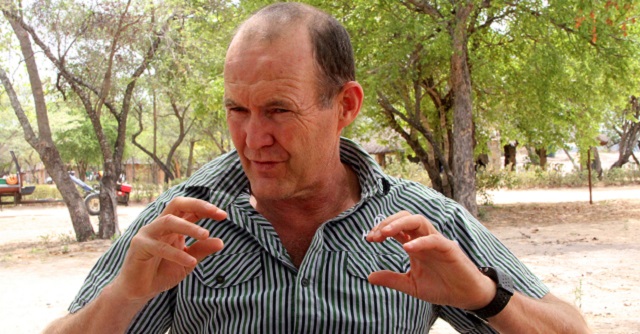The Sunday News

WHILE the attainment of independence by Zimbabwe in 1980 was expected to usher in gains in various sporting disciplines, it has however been a tale of mixed fortunes for boxing.
As a sport, boxing has seen pugilists rise and rise and stakes get higher and higher but the number of people taking up the sport has declined and action in boxing has nosedived.
One of the country’s top boxing trainers, Philip “Striker” Ndlovu says the sport’s decline has been marked by a lack of corporate support resulting in the reduction of professional bouts and that had seen boxers failing to maintain their consistency and easily losing titles they would have won.
But Ndlovu was also quick to point out self-rule had also come with some notable achievements saying it was pleasing to note that the country had managed to produce a world champion in the name of Charles Manyuchi, the reigning World Boxing Council welterweight title holder.
He said that was a sign of the immense talent that the country had.
He said while there were several boxers that had emerged in Zimbabwe over the past years most were only able to win Commonwealth and African titles hence Manyuchi’s feat to win a world title showed his immense talent.
“I saw Manyuchi in the ring during the 2007 National Youth Games and I predicted that he would hog the limelight in the sport because he exhibited great skill and talent,” said the boxing coach.
Ndlovu said over the past few years ring rust has become synonymous with a chorus in local boxing circles, as pugilists have virtually failed to secure fights to keep them in pristine condition due to lack of funding.
“Before independence there were a lot of bouts that used to take place with about five top professional bouts being held every year and this kept the sport in the limelight and attracted a lot of boxers but after independence there was a gradual decrease in the number of bouts held and this impacted negatively on those interested in joining the sport.
“At this point in time we should be having about 12 to 15 top professional bouts throughout the country but that is not the case in Bulawayo. We last had a professional bout in 2011 and it had come after a long absence of fights,” he said.
Ndlovu, who turned professional in 1978, felt that the greatest local boxer was Langton “Schoolboy” Tinago, who he said was immensely talented in the sport and made huge achievements winning several commonwealth titles.
Tinago could have achieved more had it not been for the sanctions imposed on the then Rhodesia by Britain during the UDI era and the sporting sanctions that were in force then, which prevented local boxers from featuring in international tournaments.
Schoolboy remains Zimbabwe’s unsung sporting hero despite having earned himself a place in the Guinness Book of Records after he became the only three-time Commonwealth boxing champion after he grabbed two lightweight crowns and a super-featherweight.
Tinago, who largely perfected his art after independence, was rewarded for his achievements as he was awarded the best boxer of the century by the Zimbabwe Boxing Board of Control.
“When we used to box, we used to fight at least once a month and we would get sponsorship from big companies because back then the Government would exempt them from paying tax or deduct a certain amount from their taxes if they promoted sports. We used to have Victoria Foods and National Foods here in Gweru sponsoring boxing,’’ Tinago was quoted by our sister paper, The Herald, recently.
“There are fellows such as Jay Naidoo, Ringo Star and Kid power who held their own before independence, who could have done better in Independent Zimbabwe. And after independence there were several boxers among them the late Proud “Kilimanjaro” Chinembiri, Alfonso Zvenyika, Modecai Donga, and Thamsanqa Dube, who did the country proud, winning the World Boxing Association Pan African heavyweight title.
“There are many boxers who have emerged and done well but they have lacked consistency because of lack of fights. Despite beating South African Jake Els in 2009, Dube struggled to find someone to organise a match where he would defend his belt. Manyuchi is now holed up in Zambia and that is where his fights are being organised,” said Ndlovu, who has nurtured the likes of Dube among several local boxers in the region.
Striker, who turned to coaching after sustaining a serious injury, said it was up to the corporate world to come to the rescue of boxing and allow talented pugilists to bring glory to the nation.
He said the sport’s fortunes could turn around if there was a buy-in from sponsors who would fund bouts.
“We can produce top quality boxers who can go on and dominate the sport throughout the world if we are better resourced but with the financial situation we are going to remain grounded with one boxer in a while emerging to hog the headlines,” he said.



